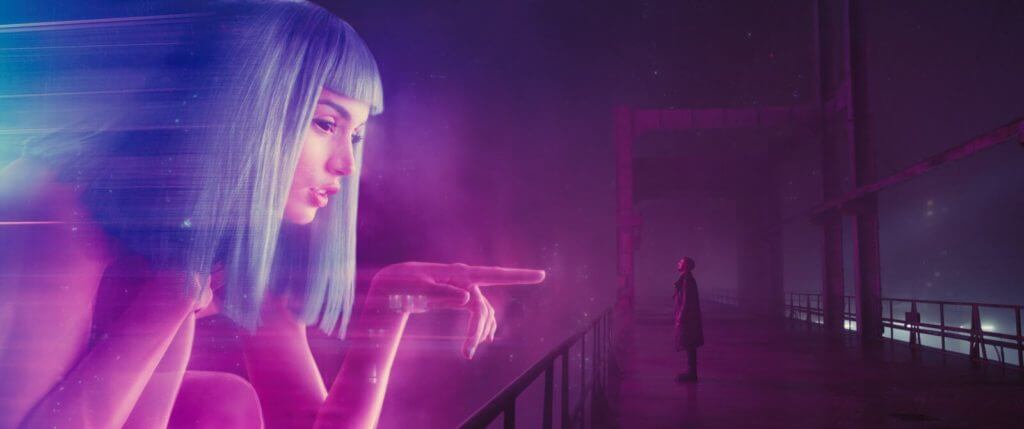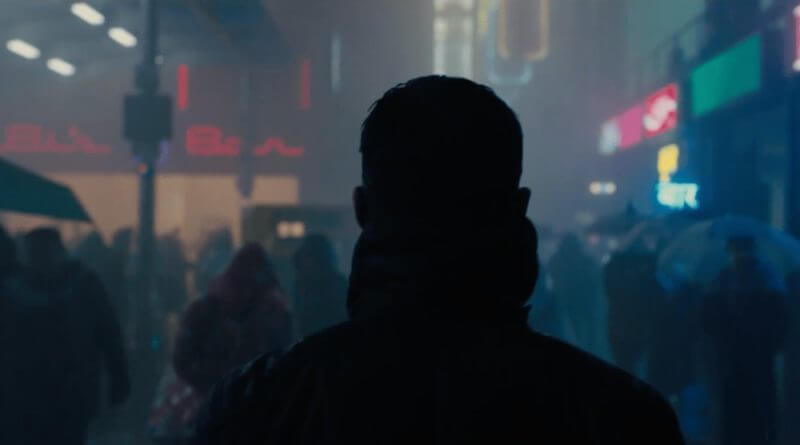Review: Blade Runner 2049 (2017) ★★★½
Though I’m not a diehard fan of the original Blade Runner (1982), there’s no denying that it has developed a cult status, and for good reason. The neo-noir atmosphere, coupled with the captivating dystopian world and superb effects not only influenced future films, but established Blade Runner as a landmark achievement in the science fiction genre. Unfortunately, the film suffers from a rather bizarre performance from Harrison Ford (in addition to his terribly executed narration), poor pacing, and a confusing plot. It is a fascinating film nonetheless, and Denis Villeneuve’s reboot of the series, Blade Runner 2049, strives to achieve the same level of complexity and ingenuity. While the film hits the mark more often than not, it is not as groundbreaking as the original, and also suffers from some of the same issues that plagued the 1982 film.
Thirty years after the events of Blade Runner, a bioengineered human named K (Ryan Gosling) is tasked with hunting down and killing rogue androids, known as “replicants.” These replicants live and work in human society, but are often relegated to subservient positions, and are beholden to human interests. Himself a replicant, K works for the LAPD and is designed to be completely obedient. When K discovers evidence of a deceased replicant who gave birth to a child (a theoretical impossibility), he is tasked with finding and killing the child before its discovery leads to a war between humans and replicants.
Much like the original film, the plot grows increasingly complex in the second act, and, for better or worse, the audience is given little in the way of useful exposition. Usually, science fiction films over-explain their narrative universe ad nauseam, but Blade Runner 2049 is refreshingly vague, leaving the viewer to piece together the intricate sociopolitical backdrop in which the characters exist. K is a character who, much like the android protagonist in Ghost in the Shell (2017), struggles with classifying memories as real or fabricated, and suffers from an identity crisis as a result. Gosling plays a complex character, and, unlike Scarlett Johansson in Ghost in the Shell, he was perfectly cast for the role. He straddles the line between human and nonhuman in his performance, and never tries to oversell either dynamic.

Initially, what is most striking about the film is its incredibly dark tone. From the opening scene, in which K confronts a rogue replicant and violently “retires” him, we are given a view of a harsh, unforgiving universe. Unfortunately, this tone is occasionally lifted, so as not to depress audiences too much, which actually works against the film. Rather than doubling down on the inherent darkness written into the story, Villeneuve veers in a more predictable direction, turning the latter half of Blade Runner 2049’s script into a futuristic family soap opera. Once Harrison Ford’s character is introduced, the film devolves into tired action movie cliches and traditional family values. Ford’s inclusion in the film, though necessary for the larger story, feels forced, like a bone thrown to fans of the original.
In addition to unnecessary tonal shifts, Blade Runner 2049 is also bogged down by inconsistent pacing. With a runtime that is just shy of three hours, and large stretches of time with little to no dialogue, the film begins to feel tedious about halfway through. Combine this with the complex plot, and the entire viewing experience becomes a strain on the senses. Long stretches of inaction are suddenly interrupted by short bursts of action, but there is not a satisfying buildup to the climax. The ending, while superb, does not fully make up for the slow, dreary second act.

The original Blade Runner’s lasting power was largely due to its incredible effects (for the time). Though Blade Runner 2049 has far better visual effects and photography, in the sense that the technology has improved tenfold, there is very little to prove in terms of stellar special effects these days. I’m not implying that there is no room for improvement in CGI, there certainly is, but quality effects can be seen in just about every new blockbuster released these days. So visually, though it is very impressive, Blade Runner 2049 gets lots in the shuffle, rather than paving the way for even greater improvements the way that Blade Runner did.
Ultimately, despite its weaknesses, Blade Runner 2049 is a beautiful film that cannot be fully explained in words. The photography, costumes, soundtrack, and effects in Blade Runner 2049 are all incredible, and it is clear that Denis Villeneuve put just as much effort into creating a living, breathing dystopian world as Ridley Scott did with the original. Ryan Gosling is superb as K, and although Harrison Ford’s performance is somewhat lackluster in comparison, he helps tie in the story from the original film. Though Blade Runner 2049 is not a perfect film by any means, it is a very thought-provoking addition to the science fiction genre and a reboot that does not spoil the successes of its predecessor.
Rating: ★★★½ out of 5
If you’d like to watch Blade Runner 2049, it is currently available for purchase via Amazon here.

